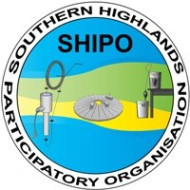
Public Projects
SHIPO
SHIPO as an NGO
The Southern Highlands Participatory Organisation (SHIPO) is a Tanzanian Non Governmental Organisation (NGO) based in Njombe, Tanzania.
SHIPO's aim is to facilitate organized groups (e.g. communities, women groups) with the successful implementation of self-help projects that contribute to the improvement of their living standards and the alleviation of poverty.
Vision
To obtain sustained improvement in the the living standard of poor people in Tanzania
Mission Statement
To facilitate and provide sustainable products and services which contribute effectively to improved capacity and behavior based on the demand, needs and capacities of people through Multi Stakeholder Participation
......................
SHIPO Team
Workshop and ToT on Rural Water Supply Networks
by SHIPO in Water and Sanitation
The overarching goal of this project is to strengthen capacities in the rural water sector to provide better services to the population. In order to achieve this goal, a group of 3-5 trainers will be formed, and around 20 people will be trained on planning and designing maintenance-friendly water suNjombe Beyond
by SHIPO in Environment
Reducing the plastic wasted in Njombe town and raising awareness in the local community about the problems and opportunities around plastic. SMART approach: develop the private plastic recycling sector using simple tech through supply chain development and training and support to local artisans.Boresha Elimu Mbozi
by SHIPO in Education
SHIPO has been funded by Pestalozzi Children Foundation, a Swiss Foundation to implement a "Boresha Elimu Mbozi" project in 20 schools and 20 villages of 5 wards in Mbozi DC. The project aims to improve access to quality education and expects to reach over 15,500 beneficiaries; see Stakeholders partMammie 2 Project
by SHIPO in Education
The aim of the MAMMIE II Project is to contribute effectively to the development of quality education in 20 primary schools in the Ludewa district, creating a conducive learning environment for about 1,094 pre-primary students, 6,427 pre-primary students, and 172 Teachers in a period of 3 Years.....






